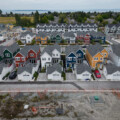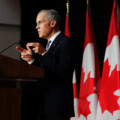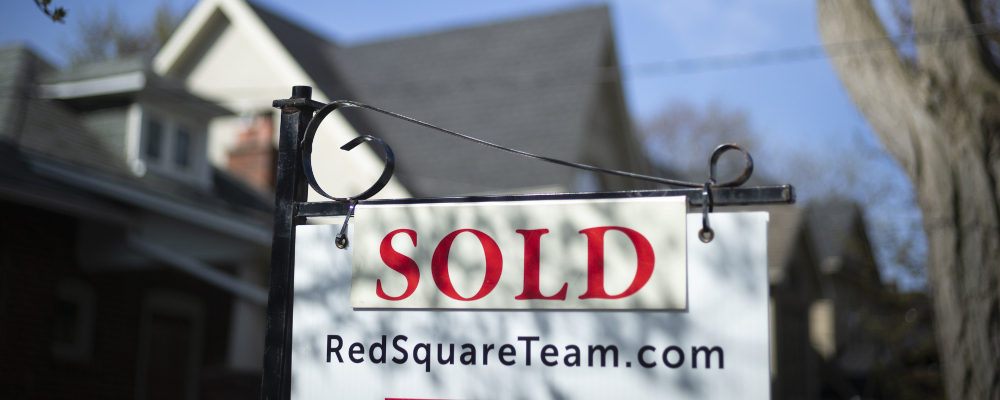It would now cost you over $1-million to buy the average house listed for sale in Toronto. According to Bloomberg, as a ratio to local incomes, that’s enough to make Toronto the fifth most unaffordable city in the world.
This is kind of good for Toronto homeowners and really bad for everybody else.
Much of the recent discussion around wealth and income inequality has been shaped by Thomas Piketty, his book Capital in the Twenty-First Century, and the now infamous “r > g”, which states that the rate of return to capital (r) is greater than the rate of economic growth (g). In this formulation, r includes profits, dividends, interest, rents, and other income from capital.
According to Piketty, this has led and will continue to lead to a concentration of wealth and some consequent social and economic instability.
Northwestern University’s Matthew Rognlie has the best review of Piketty’s evidence, and found that housing prices are “entirely” responsible for the increased rate of return to capital.
“A more limited narrative that stresses scarcity and the increased cost of housing better fits the data,” writes Rognlie.
In his review of Piketty’s book, Lawrence Summers wrote that, “probably the two most important steps that public policy can take with respect to wealth inequality are the strengthening of financial regulation to more fully eliminate implicit and explicit subsidies to financial activity, and an easing of land-use restrictions that cause the real estate of the rich in major metropolitan areas to keep rising in values.”
Unsurprisingly, the rich in major metropolitan areas don’t really want to see their real estate stop rising in values. They make it very clear through their votes and activism that they’ve invested in scarcity and that they’re generally opposed to seeing too much new housing supply undermine that scarcity.
Somewhat surprisingly, progressive city councillors are happy to do their bidding.
Former Toronto city councillor and current federal MP and parliamentary secretary for housing and urban affairs Adam Vaughan recently suggested that any reform that led to a 10% drop in housing prices would be unacceptable. That’s just over 12-months’ worth of gains in Toronto, mind you.
As a result, young people and middle class families are moving farther and farther from the city’s core, in a bid to “drive till you qualify,” contributing both to urban sprawl and lengthy, congested commutes. And there are countless Canadians who view Toronto housing prices (usually correctly) as an insurmountable obstacle to participating in Toronto’s lucrative labour market at all.
Toronto is rapidly becoming Elysium, a super-stratified world of haves and have-nots, aided by politicians who refuse to build a lot more housing to let a lot more people in.
Let’s quickly review how we’ve gotten here.
Housing in Toronto is expensive because there’s not enough of it. In market economies, scarce resources are allocated by price.
There’s not enough of it because the City’s official plan and zoning by-law has designated 88 percent of the land area effectively out of bounds for new housing development, according to Ratio.City. And that’s because that’s what councillors want.
Council could amend the official plan and zoning by-law to allow for much more development, but it hasn’t. And that’s because that’s what the people who elect Councillors want.
It’s hard to see how this gets resolved democratically. Building a lot more housing in Toronto would mostly benefit people who don’t vote in its municipal elections, either because they don’t yet live in the city or because they’re not yet of voting age (or even born).
The process skews very heavily in favour of incumbents over new entrants, and again, at the cost of ever-greater inequalities of opportunity, income, and wealth.
It probably takes a higher level of government stepping in to more fully consider the opportunity cost of restrictive municipal land use rules. Through Bill 108 and some other measures, the provincial government has made some baby steps in this direction.
If we want Toronto to be a city that’s open to and welcoming of young people and middle class families, including new Canadians — that is, if we don’t want it to become a dystopian, restrictive enclave reserved for the rich — it’s going to have to do a whole lot more.
Recommended for You

‘If you build it, they will come’: Why development charges are Canada’s real housing constraint

‘The most important geopolitical resource we have’: Why the world still needs Canada’s oilsands

Mark Carney is undoing Justin Trudeau’s legacy: 15 policy reversals from his first year in power

Want to solve Canada’s productivity crisis? Fix these 6 policy areas: DeepDive





Comments (0)